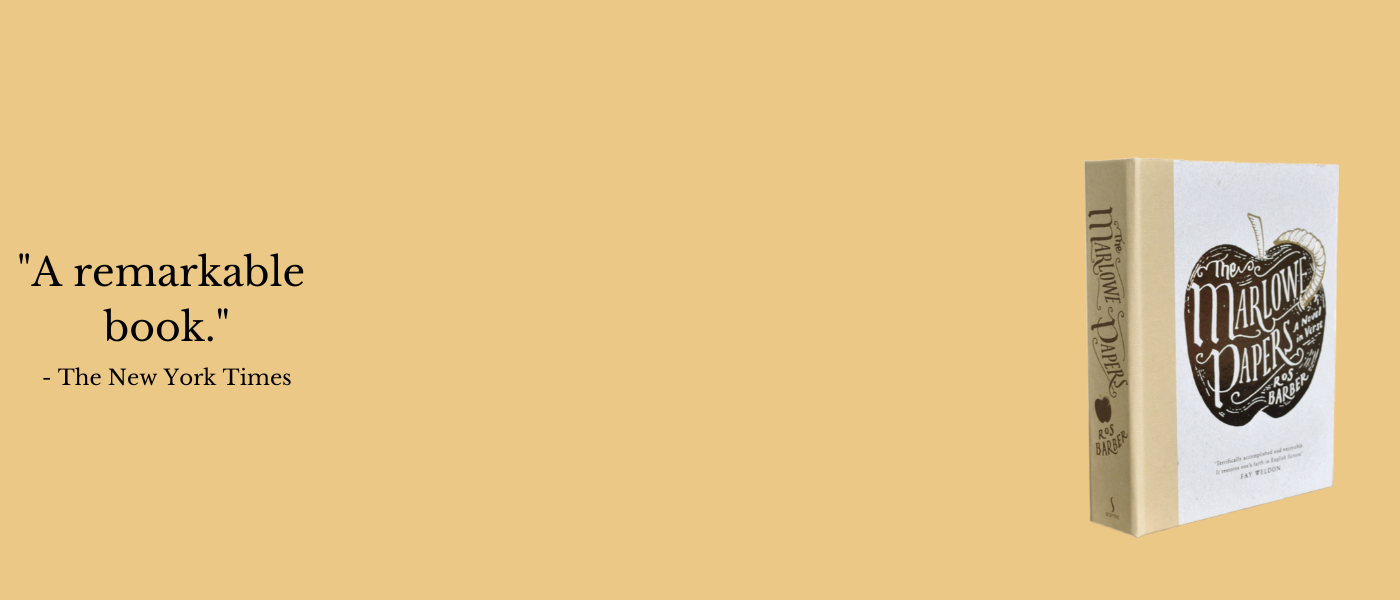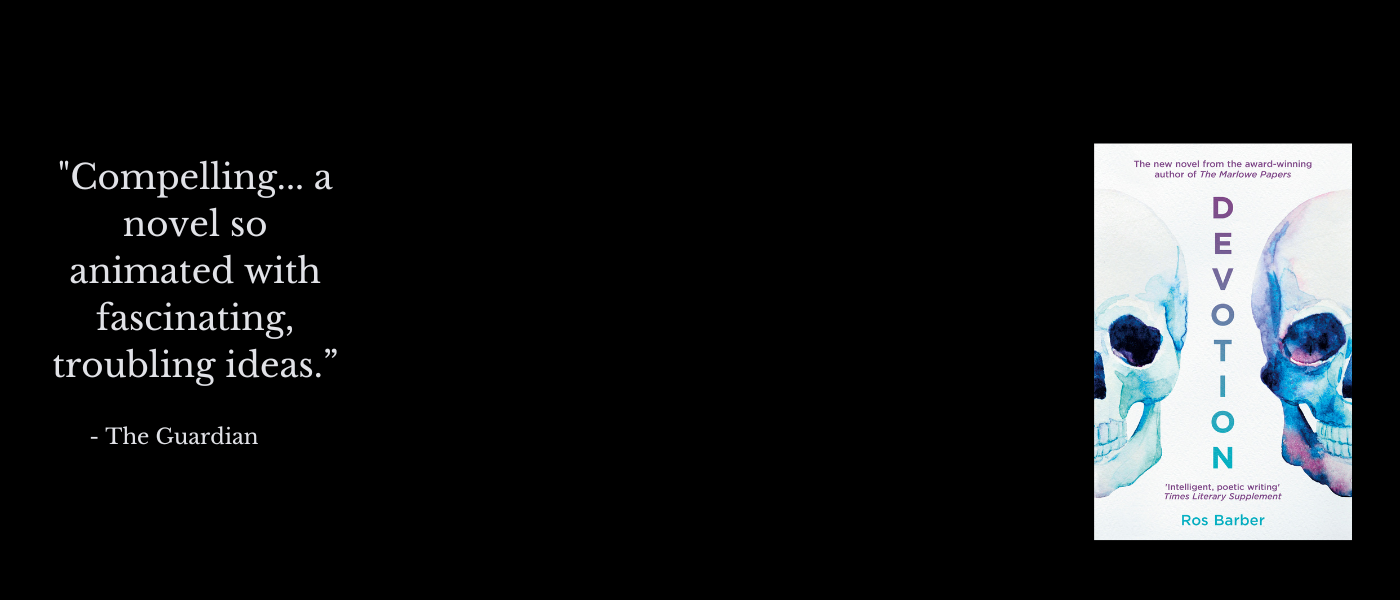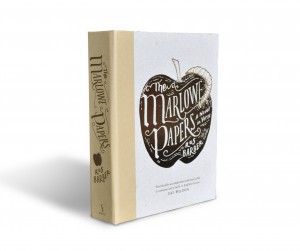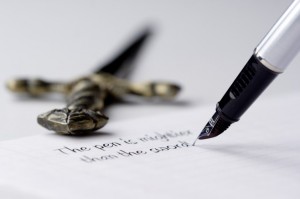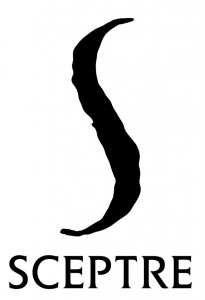

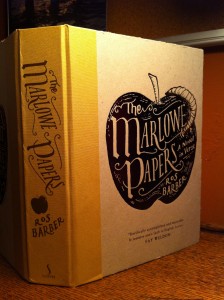 Over the weekend, the cover proof for The Marlowe Papers arrived. I swear it’s the most beautiful object I’ve ever held in my hands. The photograph doesn’t do it justice – the apple, and Fay Weldon’s quote, is in brown foil, the grub and stalk in gold. The spine is beige rather than yellow. The simplicity of the design, the ‘drawn’ lettering on the spine, the hand-crafted feel, the delicious surprise (which I have resisted revealing) on the back cover … I love everything about it. It is wonderful to think that such a beautiful looking object is going to be the container for my words. I feel valued. Which is something I know many authors, and especially many poets, do not particularly feel these days. And for such a delicious, opulent literary object to be created in an age where people discuss the imminent Death of The Book… it feels truly special.
Over the weekend, the cover proof for The Marlowe Papers arrived. I swear it’s the most beautiful object I’ve ever held in my hands. The photograph doesn’t do it justice – the apple, and Fay Weldon’s quote, is in brown foil, the grub and stalk in gold. The spine is beige rather than yellow. The simplicity of the design, the ‘drawn’ lettering on the spine, the hand-crafted feel, the delicious surprise (which I have resisted revealing) on the back cover … I love everything about it. It is wonderful to think that such a beautiful looking object is going to be the container for my words. I feel valued. Which is something I know many authors, and especially many poets, do not particularly feel these days. And for such a delicious, opulent literary object to be created in an age where people discuss the imminent Death of The Book… it feels truly special.
Perhaps it’s an antidote. I like my Kindle and have nothing at all against e-books (unlike an author friend of mine who says the ‘e’ in ‘e-book’ stands for ‘evil’). Nevertheless I love books as objects, almost to the point of fetishism. I know I would want to own this one, even if it wasn’t mine.
How thrilling, after such a long time researching and writing something I wasn’t always convinced would see the light of day, let alone snare the interest of a major publisher, that the words are so appreciated that my publisher has created something truly exceptional to hold them. So thank you, Carole, Alice and the design team at Sceptre, thank you Jon Contino, for creating this thing of extraordinary beauty. It almost made me cry.
